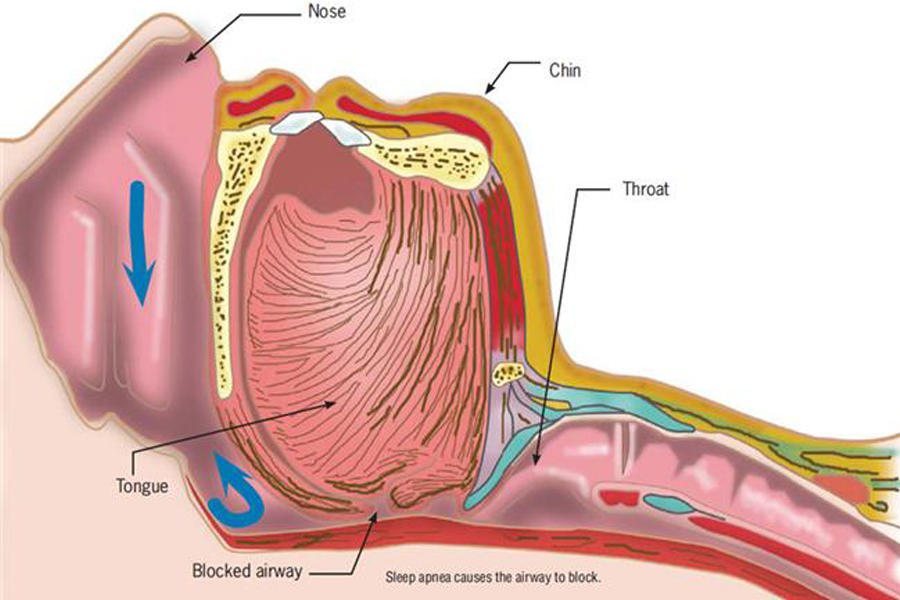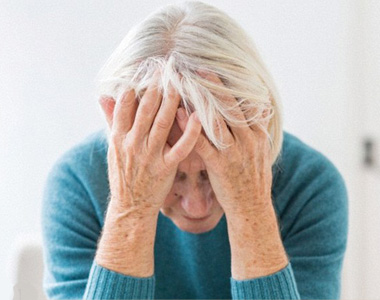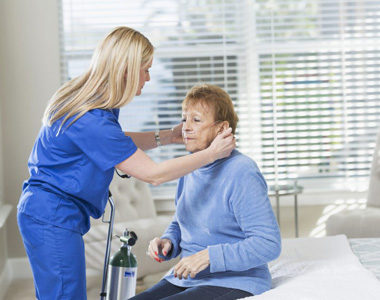
What is sleep apnea?
Sleep apnea is a serious sleep disorder. People who have sleep apnea stop breathing for 10 to 30 seconds at a time while they are sleeping. These short stops in breathing can happen up to 400 times every night. If you have sleep apnea, periods of not breathing can disturb your sleep (even if they don’t fully wake you up).
Men, people who are overweight, and people who are older than 40 years of age are more likely to have sleep apnea. However, it can affect anyone at any age.
Symptoms of sleep apnea
Because some of the symptoms of sleep apnea occur while you’re sleeping, your bed partner may notice them first. You, or that person, may notice heavy snoring or long pauses in your breathing during sleep.
Even if you don’t remember waking up during the night, you may notice daytime sleepiness (such as falling asleep at work, while driving, or when talking), irritability, or fatigue. You may also experience morning headaches, forgetfulness, mood changes, and a decreased interest in sex.
What causes sleep apnea?
There are two kinds of sleep apnea: obstructive apnea and central apnea.
What causes sleep apnea?
There are two kinds of sleep apnea: obstructive apnea and central apnea.
Obstructive sleep apnea is the most common type. Nine out of 10 people who have sleep apnea have this type of apnea. If you have obstructive apnea, something is blocking the airway that brings air into your body (also called the trachea). When you try to breathe, you can’t get enough air because of the blockage. Your airway might be blocked by your tongue, tonsils, or uvula (the little piece of flesh that hangs down in the back of your throat). It might also be blocked by a large amount of fatty tissue in the throat or by relaxed throat muscles.
Central sleep apnea is less common. This type of sleep apnea is related to the function of the central nervous system. If you have this type of apnea, the muscles you use to breathe don’t get the “go-ahead” signal from your brain. Either the brain doesn’t send the signal, or the signal gets interrupted.
How is sleep apnea diagnosed?
Your doctor can diagnose sleep apnea. He or she may ask you if you feel tired or sleepy during the day. Your doctor may also want to know about your bedtime habits and how well you sleep. Your doctor may ask you to go to a sleep disorder center for a sleep study. Tests done at the sleep disorder center may reveal which kind of sleep apnea you have. You may also need to take some equipment home with you to do a sleep study there.
Can sleep apnea be prevented or avoided?
There are things you can do to prevent sleep apnea. The following steps help many people:
- Stop all use of alcohol or sleep medicines. These relax the muscles in the back of your throat, making it harder for you to breathe.
- If you smoke, quit smoking.
- If you are overweight, lose weight.
- Sleep on your side instead of on your back.
Sleep apnea treatment
Certain dental devices can be used to treat mild cases of obstructive sleep apnea. These devices move your jaw forward to make breathing easier.
A common treatment for sleep apnea is called “continuous positive airway pressure,” or CPAP. In this treatment, you wear a special mask over your nose (and sometimes mouth, too) while you are sleeping. The mask will keep your airway open by adding pressure to the air you breathe. It helps most people who have sleep apnea.
In very few cases, surgery is necessary to remove tonsils or extra tissue from the throat.
Living with sleep apnea
Sleep apnea can cause serious problems if it isn’t treated. Your risk of high blood pressure, heart failure, and stroke is higher if you have serious sleep apnea that goes untreated. You are also more likely to have traffic accidents if you drive while you’re sleepy. If you have sleep apnea, it is very important to get treatment.
Questions to ask your doctor
- Do I need a sleep study?
- What are the health risks associated with sleep apnea?
- What lifestyle changes can I make at home to help treat my sleep apnea?
- Will I need to wear a CPAP device?
- Will the CPAP device bother my partner?











